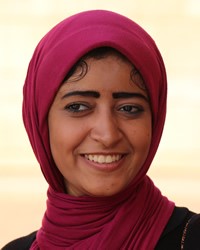Arab, Egyptian general in Sudan

Photo Source:
Terry Feuerborn - Flickr
Creative Commons
|
Send Joshua Project a map of this people group.
|
| People Name: | Arab, Egyptian general |
| Country: | Sudan |
| 10/40 Window: | Yes |
| Population: | 838,000 |
| World Population: | 73,595,300 |
| Primary Language: | Arabic, Egyptian |
| Primary Religion: | Islam |
| Christian Adherents: | 9.00 % |
| Evangelicals: | 3.00 % |
| Scripture: | Complete Bible |
| Ministry Resources: | Yes |
| Jesus Film: | Yes |
| Audio Recordings: | Yes |
| People Cluster: | Egyptian |
| Affinity Bloc: | Arab World |
| Progress Level: |
|
Introduction / History
Ancient Egypt was one of the world's great civilizations. Dynasties of pharaohs ruled Egypt from 3200 B.C. to 341 B.C. Egypt fell to the Persian Arab Muslim conquest in 640 A.D. Arabs, who introduced Islam and the Arabic language to Egypt in the seventh century, ruled for the next six centuries. Ottoman Turks conquered the country in 1517.
After the completion of the Suez Canal in 1869, Egypt became an important transportation hub, but fell heavily into debt. To protect its investments, Britain seized control of Egypt from 1882 until 1914. They granted full sovereignty to Egypt after World War II.
Egypt is the most rapidly growing country in the Arab world, and with limited arable land, resources are overtaxed, and society is stressed. For that reason, there is a large Egyptian diaspora that has migrated to other parts of the world. Most temporarily go to wealthy Gulf States. Others go to various European countries to earn a better living. Still others live south of Egypt in Sudan.
What Are Their Lives Like?
A large number of Egyptians live in nearby Sudan. There is tension between the two governments over water rights and the Halayeb Triangle, which is on the border between the two nation states. This probably brings difficulty to Egyptians living in Sudan.
What Are Their Beliefs?
Islam became the state religion of Egypt in 1980. The majority of Egyptian Arabs are either Shafi, Maliki or Hanafi Sunni Muslim. Most Egyptians in Sudan remain Sunni Muslim, though there is a Coptic Christian minority.
Copts brought Christianity to Egypt very early, where it remained for 1,000 years as the primary religion. Even today, the great majority of the Christian population are still members of the Coptic Church. Evangelical Christians are a small percentage.
What Are Their Needs?
Many have experienced poverty in Egypt, which has prompted migration, and placed them at greater risk of exploitation.
Those who follow Christ must have love and boldness to be a witness to other Egyptians. With a growing missionary vision, the Egyptian Church has the potential to reach both fellow Egyptians and Arabic speaking people groups in other countries for Christ. The Church is limited by lack of training opportunities, experience and funds. If additional resources are provided, church planters are willing to go.
Prayer Points
Pray that Egyptian Christ followers would become a missionary movement for the Lord in Sudan.
Pray for Egyptian Arabs to have spiritual hunger and a discernment that will lead them to the cross and the empty grave.
Pray for Egyptian Arab Christians to put their faith in the Risen Christ rather any religious institution.